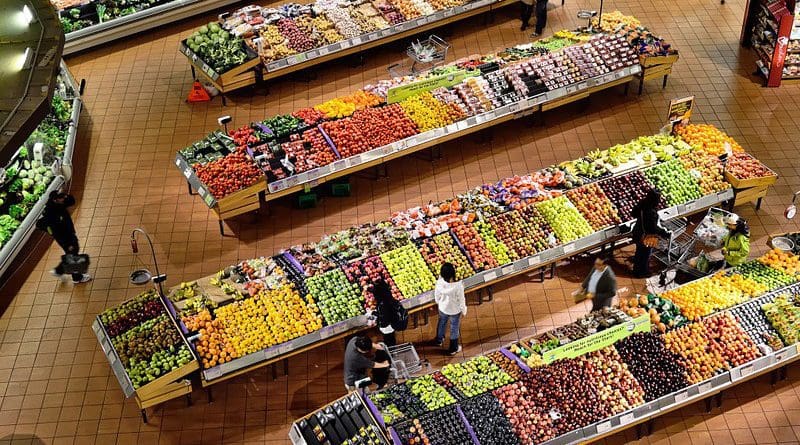Lockdown Changed Irish Shopping And Cooking Behavior
Early 2020 lockdown boosted confidence in cooking and preparing healthier meals, and could offer teachable moments to promote healthier eating long term, says new research from Teagasc.
The study, based on an online survey of 651 adults in Ireland and published in the Irish Journal of Agricultural and Food Research, shows how the first pandemic lockdown in early to mid-2020 forced people to change their shopping and cooking habits.
The researchers found that Irish shoppers were more likely to head to the shop with a list during the first lockdown period, and plan out meals for the week ahead. Consumers also spent more time cooking at home and more time on meal preparation.
Despite anecdotal reports, most Irish shoppers did not seem to stockpile foodstuffs though people did buy greater quantities of rice and pasta. A little more flour and eggs were also purchased, reflecting the increased importance of baking.
Respondents also said they gained in confidence in cooking and preparing healthier meals, and threw away less food during lockdown.Cooking skills reportedly went up, especially for baking bread.
The changes were not all positive, however.Enjoyment of shopping plummeted, with consumers saying it had become more stressful, time consuming and frustrating.
Professor Maeve Henchion, a researcher at Teagasc and one of the authors of the study, sees the increases in meal planning and preparation as positives for our health.“From a public health perspective, this could be a teachable moment.We could help people identify healthier foods and develop their cooking skills,” she says.
“The more people cook a meal from scratch, the more they have an appreciation for what goes into them. And the more they pass those skills on to the next generation, the more diverse diets they have.” Meal planning encourages healthier eating, she adds.
Still, the question remains whether these new behaviours will continue or whether people will revert to pre-lockdown behaviours when the pandemic ends and they have less time at home. “If we can get people to embed some of those behaviours, they will have healthier diets,” Professor Henchion says.
Some of the changes we have seen during the Covid-19 pandemic are probably here to stay, she predicts. “Food safety, good hygiene and a focus on hygiene in the supermarket are going to continue to be important. People have become really conscious of things like clean shopping trolleys and such like.”
The Irish survey was part of an international survey in 38 countries coordinated by the University of Antwerp. It found that people could be clustered into one of two categories: ‘Covid copers’ and ‘restless restrictors’. The 400 Covid copers were more positive about feeling more connected and having more time, whereas the restless restrictors had a lower sense of connection since lockdown and a stronger sense of restlessness and nervousness.
The behaviours and attitudes of consumers in different categories were somewhat different; the restless restrictors had larger changes in attitudes towards shopping for example than the Covid copers, viewing it more negatively during the lockdown than before the lockdown.
The research paper was co-authored by Mary McCarthy, Professor of Marketing in Cork University Business School, University College Cork, and Dr Sinead McCarthy, a researcher focused on consumer behaviour in relation to nutrition and health in Teagasc.

